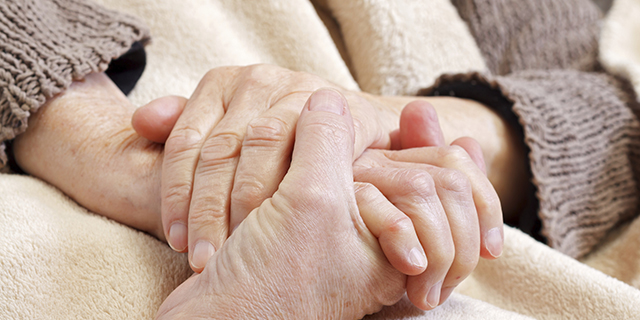TÜBA Principle Member Prof. Dr. H. Tayfun Özçelik and his Team have Found the 'Parkinson's Gene'
The clinical team directed by TÜBA Principle Member Prof. Dr. Tayfun Özçelik and comprised of clinicians including 2012 TÜBA-GEBİP Award recipient Dr. Ayşe Begüm Tekinay, found the gene that causes Parkinson’s disease and hand tremors.
Clinicians have known since the 1800s that a portion of people with hand tremors later develop Parkinson’s disease but the correlation between the two had remained a neurological mystery.
In particular, hand tremors (essential tremor) is a disorder that 1% of the world’s population and 4% of the elderly population encounter. It is estimated that there are at least 1.5-2 million people in Turkey with essential tremor disorders. This figure is about 4 million in the European Union and reaches 10 million in the USA.
Parkinson’s disease takes second place among movement disorder diseases. In developed countries the rate of this disease is 30 in one thousand, one percent in people over 60 and 4 percent in people over 80. There are nearly 7 million Parkinson’s patients in the world.
With this discovery the mutual reason for the two different movement disorders most frequently seen in people has been identified for the first time which is expected to open the doors to a number of new treatments.
2012 TÜBA-GEBİP Award Recipient Dr. Ayşe Begüm Tekinay: “We are researching new genes in about 100 families”
The research team comprised of Bilkent University and Washington University researchers and Hacettepe and Ankara University clinicians found the answer to this question in a family that is known to have lived in Central Anatolia for nearly 400 years. By reaching six generations of this large family, in which there are relatives and members suffering from hand tremors and Parkinson’s disease, the team sequenced all the genomes and made comprehensive family trees and neurological examinations.
As a result of the comparative study that was done on 55 different large families in addition to this one for a period of 5 years, it was determined that the HTRA2 gene, which is a protease working in the mitochondria, is the joint cause of both disorders. The fact that the mutation found in the HTRA2 gene also caused findings similar to Parkinson’s in mice stood out as strong and independent proof.
When the disorder gene is carried over by both the mother and the father together the hand tremors start in ages from 10 to 20 and result in Parkinson’s within 30 years.
It had been found previously that both disorders were caused by the degeneration of brain cells and especially the cells that produce dopamine, which was known from previous research to impact movement skills and mental state of people.
One of the authors in charge, Bilkent University UNAM National Nanotechnology Research Center Faculty Member Dr. Ayşe Begüm Tekinay explained “We are doing research on new genes in about 100 families. We have a project supported by TÜBİTAK to do this”.
TÜBA Principle Member Prof. Dr. Tayfun Özçelik: "We will continue to shed light on new disease genes”
It was already known that marriage among relatives contributes to the existence of rare genetic disorders, but such a powerful affect of inbreeding on the existence of genes for more complex diseases like neurodegeneration, obesity and diabetes was unexpected.
In the statement made by the director of the research, TÜBA Principle Member and Bilkent University Science Faculty Dean Prof. Dr. Tayfun Özçelik he said “I strongly believe that we will continue to shed light on new disease genes that are related to complex disorders in the near future”.
There is no known definitive treatment for Parkinson’s disease or hand tremors. The fact that some medications and deep brain stimulation decrease some of the symptoms is a source of hope for those who suffer from such diseases.
Member of the American Academy of Sciences, Washington University faculty member and Lasker Award recipient Prof. Dr. Mary-Claire King said “Dr. Tekinay’s research has presented new hope to the world of science. The Bilkent, Hacettepe and Ankara University teams have made valuable contributions to Parkinson’s and hand tremors which I believe will continue to grow in the future and pave the way for treatment”.


